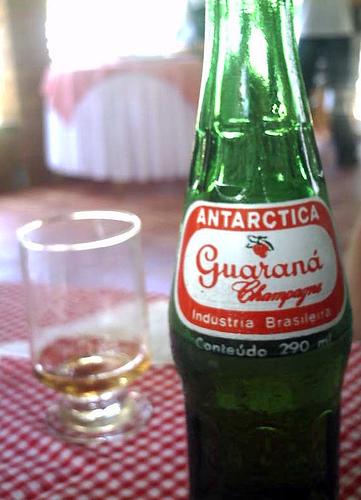Things are looking increasing grim in the South African real estate market. During the period 2001-2006, Sputh Africa had the perfect storm of hype, fluff and optimism, coupled with greed, avarice and fraud which artifically inflated values and produdec an absurd level of overdevelopment in some areas. Since early 2007 I've been warning people for these inflated values.
Already late 2006 I had a feeling when looking to the South African real estate market that "something was not right there".
Since 2006 South Africa has an increasingly strong Blogger community, critizing many things openly. Justin Hartman, the founder of Afrigator is one of them. He launched for example SAA sucks, a blog whicj is bringing South Africa Airways to its knees and to which I happily participated. On January 20th, the whole crew of a SAA flight has been arrested for carrying 50kg cannabis and 4kg cocain the their luggage; yes that kind of airline...
There's also a widespred Blogging coverage on the South African real estate market, Cape Town Property Bubble being one of them. Most of those Bloggersoperate anonymously.
Today many SA developers are desperate. To get the cash flowing to keep mortgages and construction loans intact, are trying everything: slashing prices in half, selling units in bulk packages to vulture firms or equity groups. Condo owners who bought at the top of the market, meanwhile, steam while their neighboring units are rented out at pennies on the dollar and their condo associations struggle to scrape together enough cash to keep basic services such as garbage collection and maintenance.
In May 2008 this Cape Town Greenpoint Apartment was for sale at 1.895.000 SAR. Today the seller is asking for a buyer to just take over his bond and take it off his hands for 1.550.000 SAR.
South African banks can't even sell their repors. This repossessed house in Milnerton was listed in December 2008 for 1.650.000 SAR (initially it was listed at 1.900.000 SAR). Today the bank is not succeeing to sell the repossessed house at 1.300.000 SAR.
Yet many investors remain blind for the true extent of the SA real estate bubble; they remain blinded by the bluff. Especially banks like FNB fueled the hype. Here is an overview of quotes from FNB property economist John Loos from the period 2006 - 2009:
June 2006:
"I think later in the decade towards 2008, house inflation will start to pick up".
April 2007:
"So, I don't see the end of house-price inflation for the country as a whole, and I think that by about next year you could start seeing a recovery in house-price inflation after some further decline this year... I think commercial property returns are going to be excellent for the rest of the decade".
February 2008:
"I expect to see a gradual uptick in demand for residential property towards the middle of the year... I don't think one should probably wait much longer. If one's holding out for price deflation I think you're probably going to be disappointed... I don't think it's a situation where we're going to see price deflation on a significant scale".
September 2008:
"You mustn't count residential property out, from a point of view of getting into the market. The good time to get into residential property is probably just about here, as residential is probably near the bottom of the cycle".
January 13, 2009 (Business Day Summit show transcript, January 13, 2009)
"Yes, I'm afraid the whole global crisis has gone substantially further than most of us expected; it's taken the property downturn that started back in 2004 to worse levels and we're into price deflation and there's not a lot we can do about the situation as to where we are."
What is absolute worrying is the recent political evolution. Last week for example, president Kgalema Motlanthe decided last week to enact a legislation which will disband the Scorpions in South Africa. The Scorpions is South African's elite unit, just like you BOPE in Brazil. This decission is a political vendetta and marks a dark day in South Africa's democracy. The juridical independence and the effectiveness of crime fighting institutions willbe seriously impacted.
Emerging South
The world upside down.
-
Feb 1 2009
-
Jan 29 2009
Earlier this wrote Brazil announced protectionistic matters; a lot has been written on it since then.
But Brazil is not crazy to impose unilateral measures; they had a reason to do this. And here it is: Obama is launching a massive "Buy American" campaign; starting with a clause which stipulates that all the steel used for the infrastructure works in the US needs to be steel made in the US. Europe reacts with furious anger, but alas, this is just the start.
The real question is: what are each countries SWOTs in a world which will becoming increasingly protectionistic?
Brazil has a long experience being a very closed economy. Actually, until the 80s, the country nearly had no imports, certaily no imports of consumer goods. And even today all consumer products made in Brazil carry a logo "Industria Brasileira". Many times the locally produced products are not 100% of the same quality as the imported ones. But Brazilians will always stick to the Brazilian version, partly motivated by price, but as much by nationalistic pride. The most sold soda drink is not Coca Cola, but Guarana; a rare exception in the world and a consequence of this deep-embedded "Industria Brasileira" product.
And here we are in Belgium, with no manufacturing industry left; let be with any pride left to buy "Made in Belgium" products.
Update: BBC reports on big worries on protectionism at Davos 2009.
-
Jan 28 2009
I don't believe in the US bailout plans; I never did. I also don't believe in the idea of a Belgian Bad bank, luckily I'm not the only one. I'm also extremely sceptical on the Obama optimism. The has an impressive discours, admitted but he's no undesrtanding the very fundamentals of the issue: the US empire as it exists today can no longer be supported at the same pace. The US will invest $13,165.49 for every man, woman, child and incarcerated felon in America hoping that one day, that amount will be won back, with a profit (well; at least with the cost of capital of that amount).
Yesterday US congressman Ron Paul was on MSNBC. He explained fiercely why he opposes the current plan of economic intervention. Watch the video below, his points are extremely hard to argue with. At the same time Belgian newspaper De Tijd publishes that the Euro would be 27% overvaluated today against the dollar, based on... The Mc Donald hamburger index. Personally I prefer betting on the dollar being overvaluated today. Let's see how things turned out by end 2010.Visit msnbc.com for Breaking News, World News, and News about the Economy
-
Jan 27 2009
Protectionistic measures are coming back en vogue in 2009; big time. Especially in the US. Nevertheless it surprised me that Brazil is taking the first steps. Daring, very daring. But then again, the country can be, in a dramatic doom scenario, to a very big extent self-sufficient. Veyr much in contrast with Belgium. Brazil claims the measure to be 'temporary"; extremely curious where this will lead to on a world-scale.
-
Jan 20 2009
The Obama inauguration is not my cup of tea; I'm way too realistic for the US nationalistic fanfares. Just as Jonathan Berr I believe the differences Obama can make in his first year (end beyond) are absolutely minimal.
Personally I believe the scenario of a systemic crash is still very plausible. I believe we could be heading for an L-shaped recession with a systemic crash of the financial system before 2015; "peak credit", remember? I'm not the only one believing this scenario is plausible.
The real question you want to ask yourself is: where do you wish to be in such a scenario. -
Jan 15 2009
Donald Kohn, the Vice Chairman of the Board of Governors of the Federal Reserve System.
The real problem is that support on Wall Street is building for Don Kohn to succeed Timothy Geithner as president of the New York Fed... -
Jan 12 2009
Contrary to Europe and the United States, real estate financing was quasi non-existing in Brazil before 2004. Real estate financing in Brazil only accounts 4% of the countru's GDP. In holland and Belgium this is more than 100% of the GDP. The real estate financing market is also completely different organised. Most of the real estate financing happens through Caixa Economica.
In 2008, Caixa financed for 22,8 billion R$, or 498.000 units. The projection is that this figure will grow 20% in 2009. Contrary to thye US and Europe there is plenty of room for growth of real estate financing; especially now that the Central Bank in Brazil will lower interest rates. -
Jan 11 2009
The Wall Street Journal featured a great article on one of my favortite books this weekend:
In the book, these relentless wealth redistributionists and their programs are disparaged as "the looters and their laws." Every new act of government futility and stupidity carries with it a benevolent-sounding title. These include the "Anti-Greed Act" to redistribute income (sounds like Charlie Rangel's promises soak-the-rich tax bill) and the "Equalization of Opportunity Act" to prevent people from starting more than one business (to give other people a chance). My personal favorite, the "Anti Dog-Eat-Dog Act," aims to restrict cut-throat competition between firms and thus slow the wave of business bankruptcies. Why didn't Hank Paulson think of that?
These acts and edicts sound farcical, yes, but no more so than the actual events in Washington, circa 2008. We already have been served up the $700 billion "Emergency Economic Stabilization Act" and the "Auto Industry Financing and Restructuring Act." Now that Barack Obama is in town, he will soon sign into law with great urgency the "American Recovery and Reinvestment Plan." This latest Hail Mary pass will increase the federal budget (which has already expanded by $1.5 trillion in eight years under George Bush) by an additional $1 trillion -- in roughly his first 100 days in office. -
Jan 10 2009
Things are not going well in Belgium, yet the country is still in complete denial on the catastrophic future events. Meanwhile the couuntry is reading Geert Noels while sipping their Cognac and believing the solution for Belgium's problem is:
1. Cheaper and faster broadband
So that we can all watch porn in 1080p while listening to Dolby surround Internet radio stations
2. English as second language from 3d primary year on
And forget about French, Spanish, Portuguese or Chinese... As if knowledge of English is a problem in Belgium.
3. Develop a smart grid
Whatever that is... The poor Geert must have picked it up somewhere, but hasn't been able to translate it.
4. Invest in fashion, design, culture
Belgium has been doing this for years, yet this 'creativity sector -' has nill contribution to Belgian's GDP.
5. Put to value the immigrated populations, they can offer a 10% extra growth potential
While the "native" Belgians sip their cognac
The Wall Street Journal this weekend is more pragmatic. In an excellent article, John W. Miller writesat the epidemic of healthy sick people in Belgium (i.e. people with hangovers bilking the government and their employers by taking advantage of the country's overly generous sick leave policies). In a Hit & Run post last year, Michael C. Moynihan mentioned that, according to OECD figures, Sweden is one of the healthiest countries in Europe, yet its citizens topped the tables in accrued sick days.
According to the Journal, a number of Belgian government agencies "were averaging 35 days of paid sick leave per employee each year, more than twice the national rate and seven times the U.S. average," before authorities cracked down on the cheats. And remember, Belgian workers are already the beneficiaries of four weeks of statutory vacation. -
Jan 10 2009
Just had an excange with Bart Becks and Robin Wauters on Twitter on the 2009 foresights of the US.
I share the recent views of Nouriel Roubini and Peter Schiffer. The US recession will last two years. GDP will fall with a total of 5%, which is absolutely massive. Only in 2009, the US GDP will fall with 3,4%, declining every quarter of 2009. Unemployment will reach 9% by 2010. And housing prices will fall on average 44% from their 2007 until mid 2010. Only then will they stabilize and slowly, very slowly grow again. But it will take until far beyon 2015 before they will reach 2007 levels again. Even if Obama dances the Samba, those effects would only be felt by 2010.
And then we didn't even talk about the possible risk of a fierce US$ devaluation...
Tags
American protectionism ANC Andrew Feinstein Apartamento em Niteroi Argentina argentina Azul Belgian-strike belgium biodiesel bonds borderlinx BOVESPA bovespa Brazilian_economy brazilian_real_currency_rate Brazil weekly news carbon casa casa em Florianopolis Colinas do Mar COPE credit crisis deflation dollar entrepeneurs environment ethanol EU recession exchange external_debt flights florianopolis food Gafisa GDP Brazil German_productivity global recession inflation Inga innovation interest rate Brazil interest rate South Africa keatingeconomics Latin America leisuretime Mbeki movie mozambique music national credit act Oceanair oil opportunity petrobras planning prime productivity real Real recession SAR sequoia solar South Africa south africa South_African_Economy south_africa_real_estate_2009 stagflation stocks timetracking united_states US economy 2009 US recession US_economy V-shape recession venezuela oil southafrica Zuma
Recent Comments
- Judith on Venezuela and South Africa: Signing Major Energy Deal I think I allready have been informed ab ...
- LuckyLuke on Linkedin discussion on BRIC countries Do you know that there is diet plan base ...
- JakeBoummaNom on Linkedin discussion on BRIC countries Hi to all. Hope i'm wellcome here. ...
- Illulavop on Linkedin discussion on BRIC countries http://imgwebsearch.com/35357/img0/casin ...
- fieftRopHoife on Linkedin discussion on BRIC countries Hi I'm going to buy a bike. Counld someo ...
- fieftRopHoife on Linkedin discussion on BRIC countries Hey I'm going to buy a bike. Counld some ...







